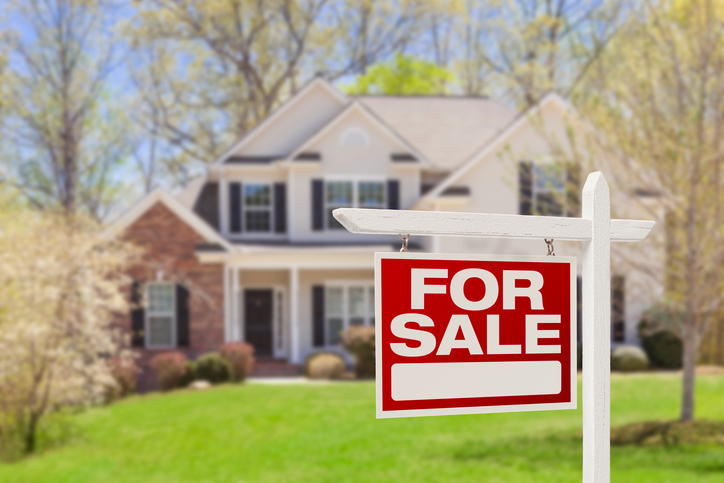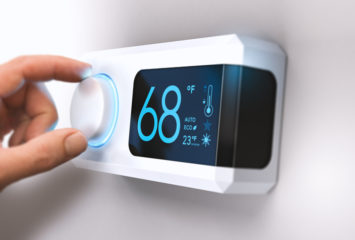Selling or Buying a Home with Solar Panels
With solar panel installation costs decreasing and the value of solar power increasing, it’s not surprising that around one million US homes have installed solar energy systems. Whether you’re buying or selling a home with solar panels, take the following into consideration.
Buying a Home with Solar Panels
Buying a house with solar panels already installed allows you to reap the benefits of solar energy without having to deal with the installation. However, before buying a home with solar panels, it’s critical to know whether the panels were purchased or leased.
If the seller bought the panels upfront, you will own the panels outright once you purchase the home. This is the ideal situation because you won’t have to pay anything for the solar panels. Even if the panels were acquired with a solar loan, the seller would be responsible for paying off the loan.
Buying a Home With Leased Solar Panels
Buying a house with leased solar panels is more complicated. Solar leases can last between ten and twenty years, and it can be expensive to buy out the system or roll the lease into the house purchase. Additionally, solar leases can have escalating payments, posing an ongoing liability. If the solar lease raises your debt-to-income ratio, you may face another hurdle to qualifying for a mortgage. If the house has a leased system, request to review the contract before moving forward with the sale.
If you’re considering purchasing a home with solar panels installed, talk to the homeowner about the following questions.
- Are the solar panels owned or leased? If they’re leased, you’ll want to find out the details of the contract, including monthly fees and length of the contract.
- Who manufactured the panels? Dedicate some time to research the array’s manufacturers. If the panels were produced by a US corporation, you’re covered by the Magnuson–Moss Warranty Act, which protects US consumers from misleading warranty terms.
- Which company installed the solar system? Most solar companies provide ten-year workmanship warranties. You’ll want to learn about the company and the warranty details, so you know whom to contact if there are any issues with the array.
- What’s the size of the system? The size of the solar array will determine how much you can save on your energy bill. When budgeting, it’s good to know how much power you can expect the panels to generate. Consider asking the seller to review past energy bills or find out the number of kilowatts the system produces.
- Does the utility company offer net metering? Depending on the state and utility company, some solar panel owners are eligible for net metering, a policy that allows you to sell excess electricity produced by your solar panel system back to the grid to service others. This can help you determine how much you can save on your monthly electricity bill.
Selling a Home with Solar Panels
Homes with owned solar panels are valuable on the market. On average, a solar energy system can add around $15,000 to a house’s sale price. Going forward, homes with “green” features like solar panels stand to sell for a higher price and at a faster rate.
However, these benefits apply most regularly to houses with purchased solar panels—not leased systems. Fannie Mae, for instance, states that leased solar systems cannot be included in a home’s valuation for mortgages, and the Federal Housing Administration (FHA) doesn’t offer much guidance for evaluating leased solar arrays at all. If you sell your house before your lease is up, the prospective buyer will have to agree to take over the solar lease, or you will have to pay off the lease before you sell. Some buyers may be deterred by the idea of taking on a lease with several years left on it.
Before putting your home on the market, review the details of your purchase or lease. If you bought your array with a secured loan, you’ll have to pay off the balance before you can sell, while an unsecured loan won’t hold up the sale. In either case, you’ll still have to pay off the remainder of the loan—even if you no longer own or live in the home.
Selling a House With Leased Solar Panels
If you are leasing a solar energy system, figure out if it makes more sense to pay off the rest of the contract or to find a buyer willing to take over the lease. To do so, you may need to reduce your home’s listing price or offer a credit to cover part of the lease fees.
If you’re planning to sell your house with solar panels installed, review the following questions and put together a folder of resources to address them for prospective buyers.
- If your system is leased, what are the steps for transferring a lease? You’ll need to know this before you list your house. It may affect your asking price and overall buyer interest.
- What are the system’s warranty details? Consult your paperwork to see if your warranty will cover a second homeowner and for how many years.
- How can the solar panels be removed? There is a possibility a buyer will request the solar panels to be removed. Speak with the company that installed your panels to see how much it would cost to remove or relocate your panels.
Understand Your Options
Whether you’re buying or selling a home with solar panels, research your options and don’t be afraid to ask questions of your solar manufacturer and installer. Use these tips and other resources on our blog to help. And don’t forget to share this piece with any friends or family who are about to buy or sell a solar-paneled house.


